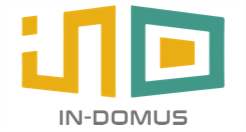
STUDENT DIGITAL NOMADs IN MILAN
More and more students are aiming to become digital nomads and consider Milan a more accessible gateway, especially for the newest careers. How to make the most of the new digital technologies to study and work at full power?
Taking advantage of digital home study
Clearly, the first way to benefit from this digital potential is to capitalize home learning. Online education and, in general, the possibility of having access to thousands of excellent teaching resources from a tablet or PC, can be considered an additional support for the training path of all university students.
Distance learning for students in Milan
It’s evident that digital home learning has undergone a real acceleration along with the growing need of remote teaching in the pandemic era. This approach has allowed young people and children to keep studying even in the age of social distancing and, to a large extent, has remained the alternative method for learning. If you want to know more about this topic, take a look at our take on digital decluttering!
Good or bad digitisation?
But is digitisation good or bad? As with any technological innovation, it merely depends on how you interact with it. But one thing is certain: digitisation can guarantee all students much greater opportunities, both for work and learning.
Work from anywhere in the world and study in Milan
One of the most noticeable achievements is the chance to carry out digital work wherever you are, rather than being tied down to any location. Because of this, studying in Milan and working from anywhere in the world is now possible with a simple PC and a good Internet connection.
Digital nomads and new professional outlets for non-residents
In this digital workplace revolution, it’s still possible to build a career the way that suits you best while maintaining your academic life in Milan. You can work, for example, as a copywriter or a tutor for other students, or even a graphic designer or data analyst. There can be many perks for those wanting to start a flexible career that’s compatible with their educational path.
Study groups from home in Milan
Another of the many advantages that digitisation has brought to off-site students is attending study groups through PCs, tablets and smartphones: students can meet with an online study group to discuss material together and cooperate.
New professional outlets thanks to digitisation
As mentioned above, digital innovation gave rise to a wide range of professional outlets: take for instance IT developers, business analysts, web project managers, graphic designers, web content specialists and all those professions that, thanks to digitisation, are now among the most coveted in the job market.
Working on the web while studying in Milan
In other words, unlike a few years ago, working online while studying in Milan is a real opportunity nowadays. It’s a way to exploit your education in a prosperous metropolis and work when and how you think it’s best, according to your non-resident student life.
Conclusion
We hope this brief overview into digital nomads has been useful. If you want to know more and find out which services In-Domus offers you, please contact us at these addresses!




